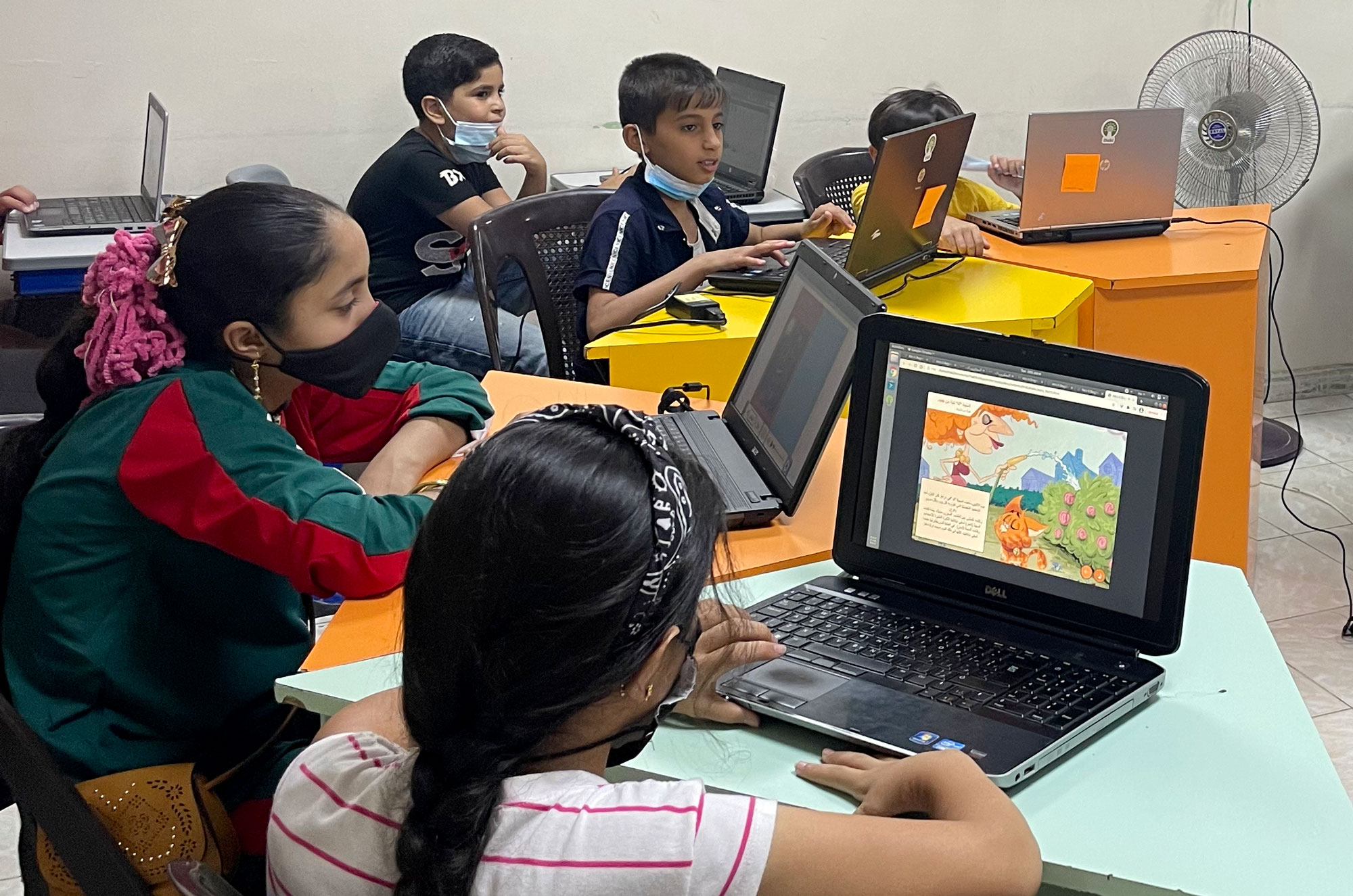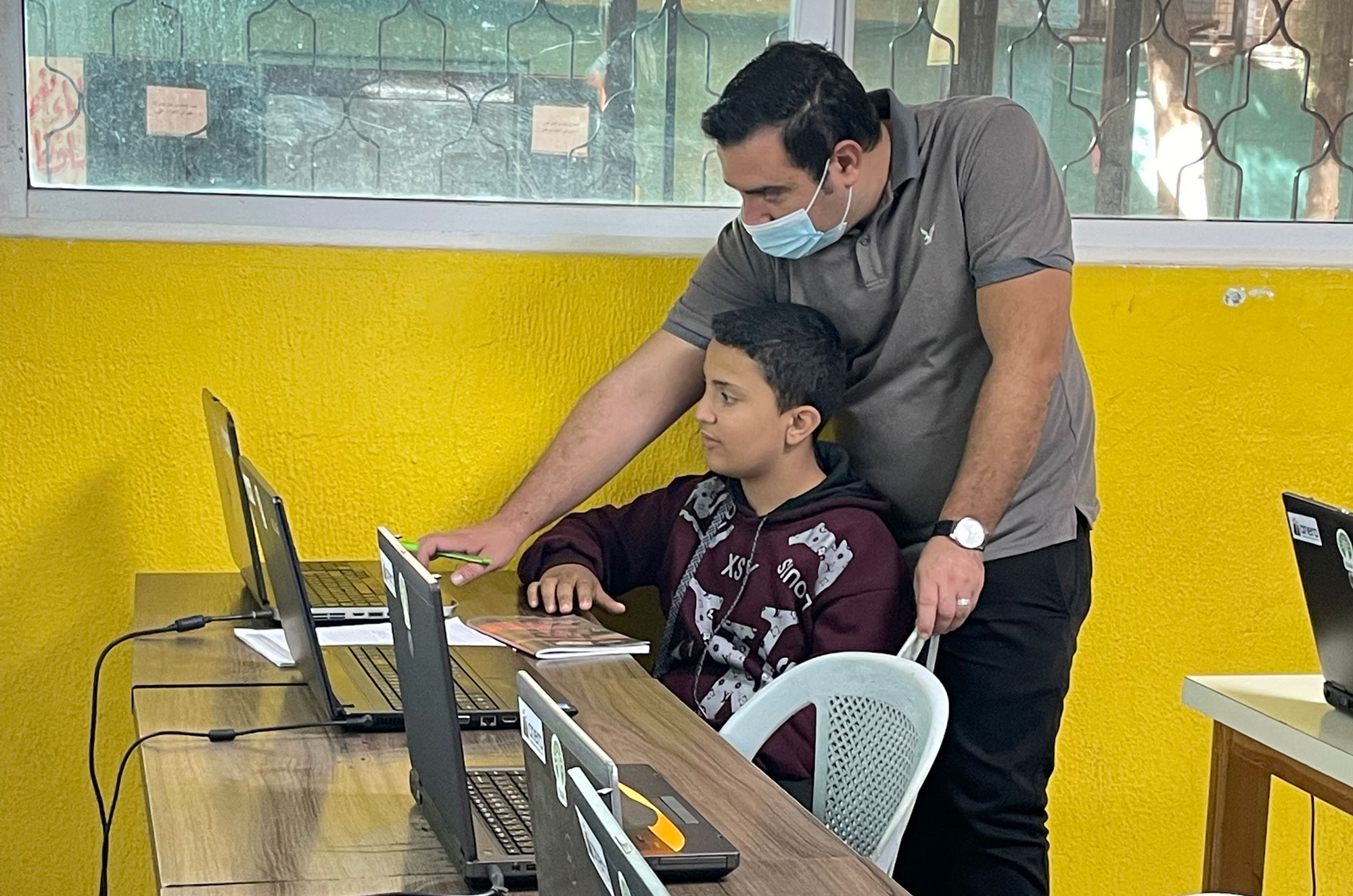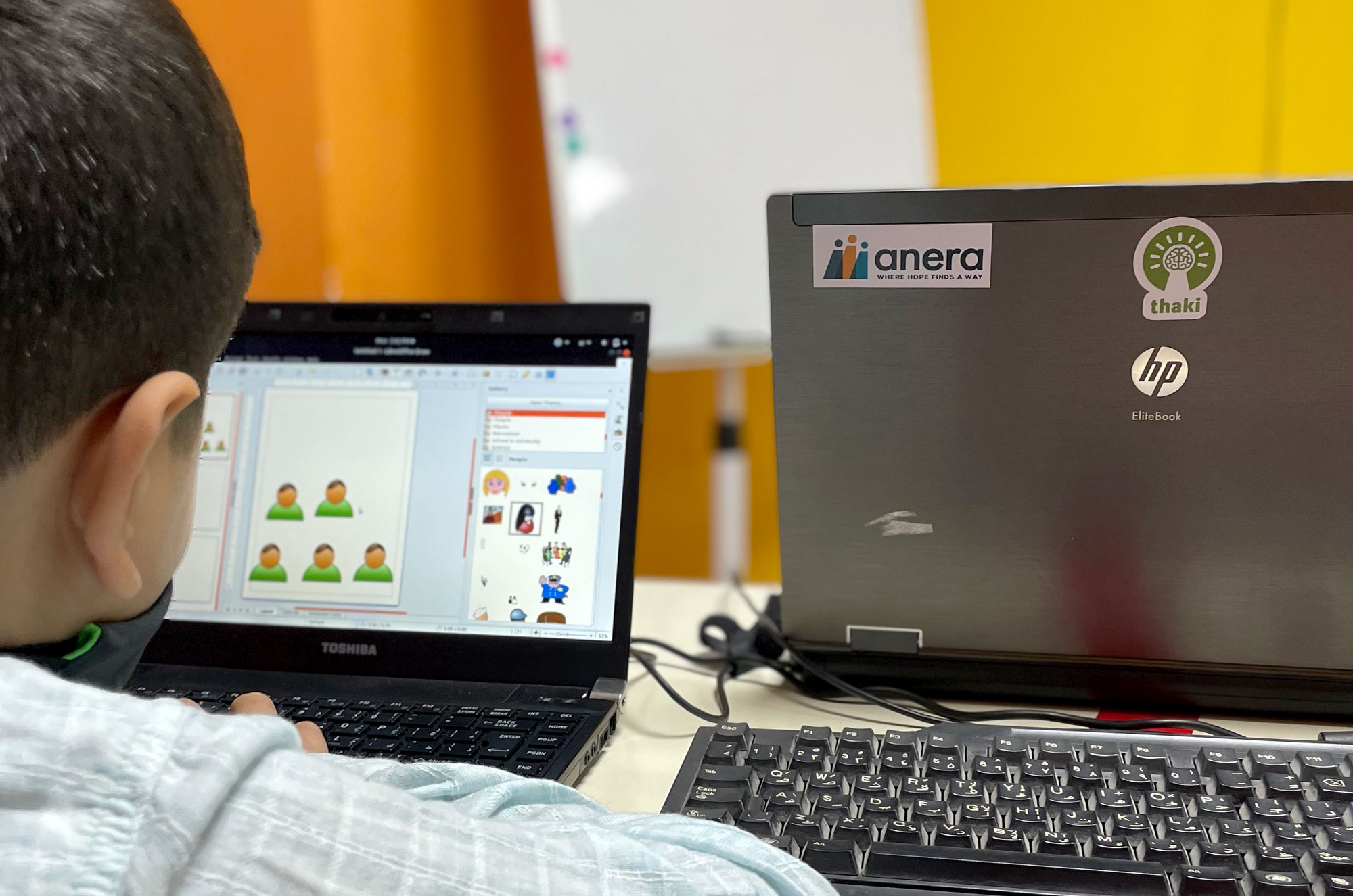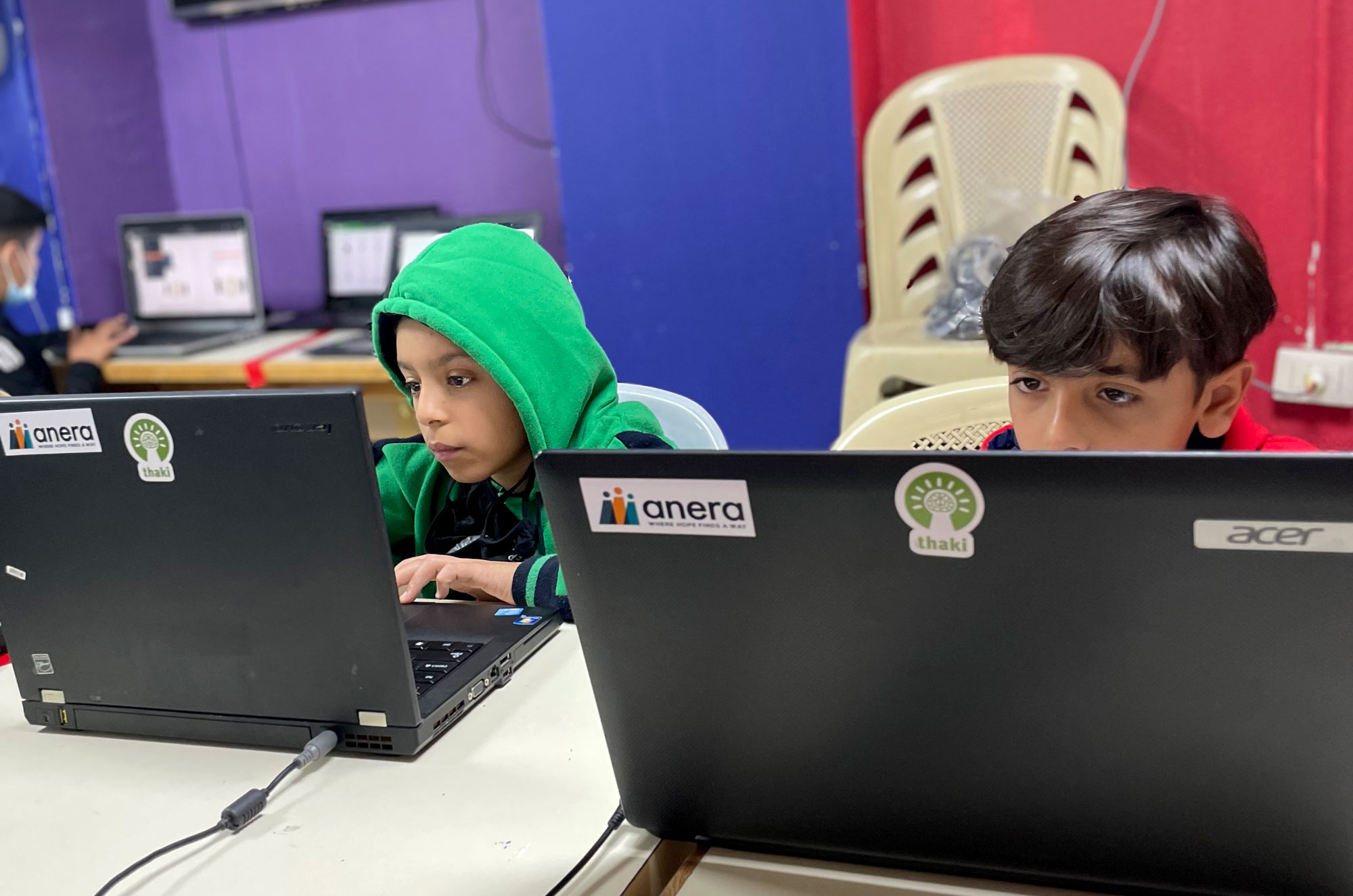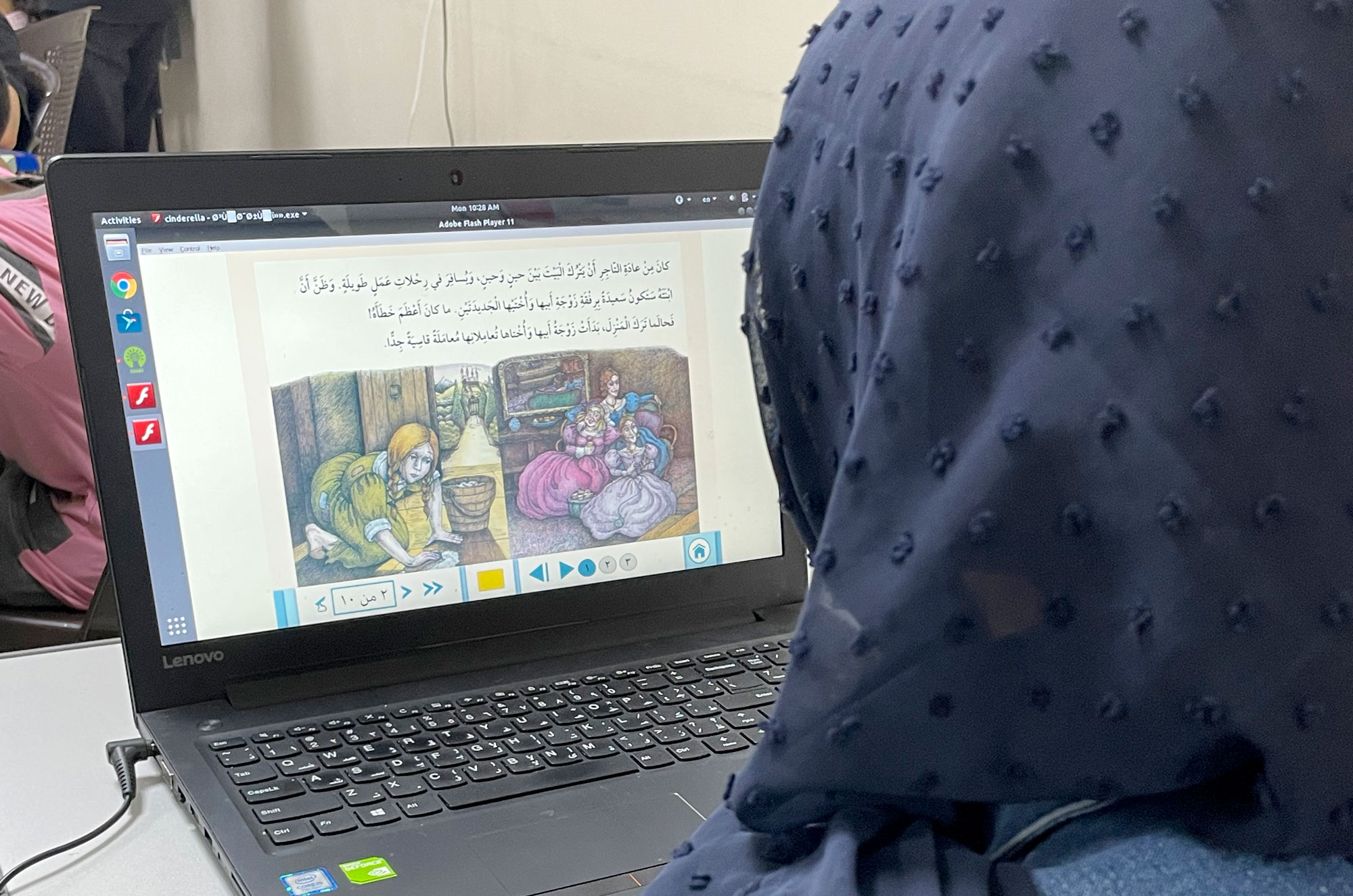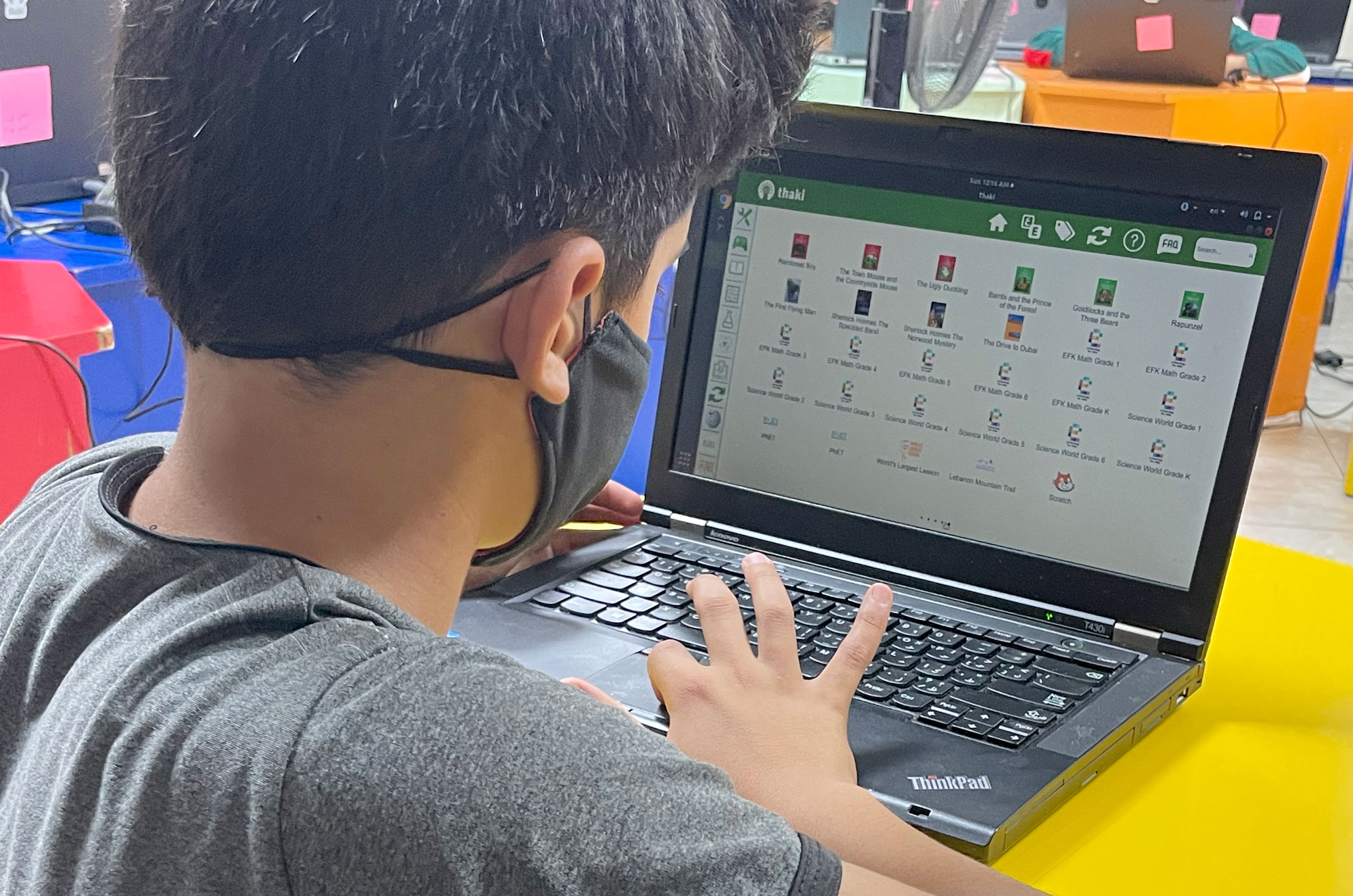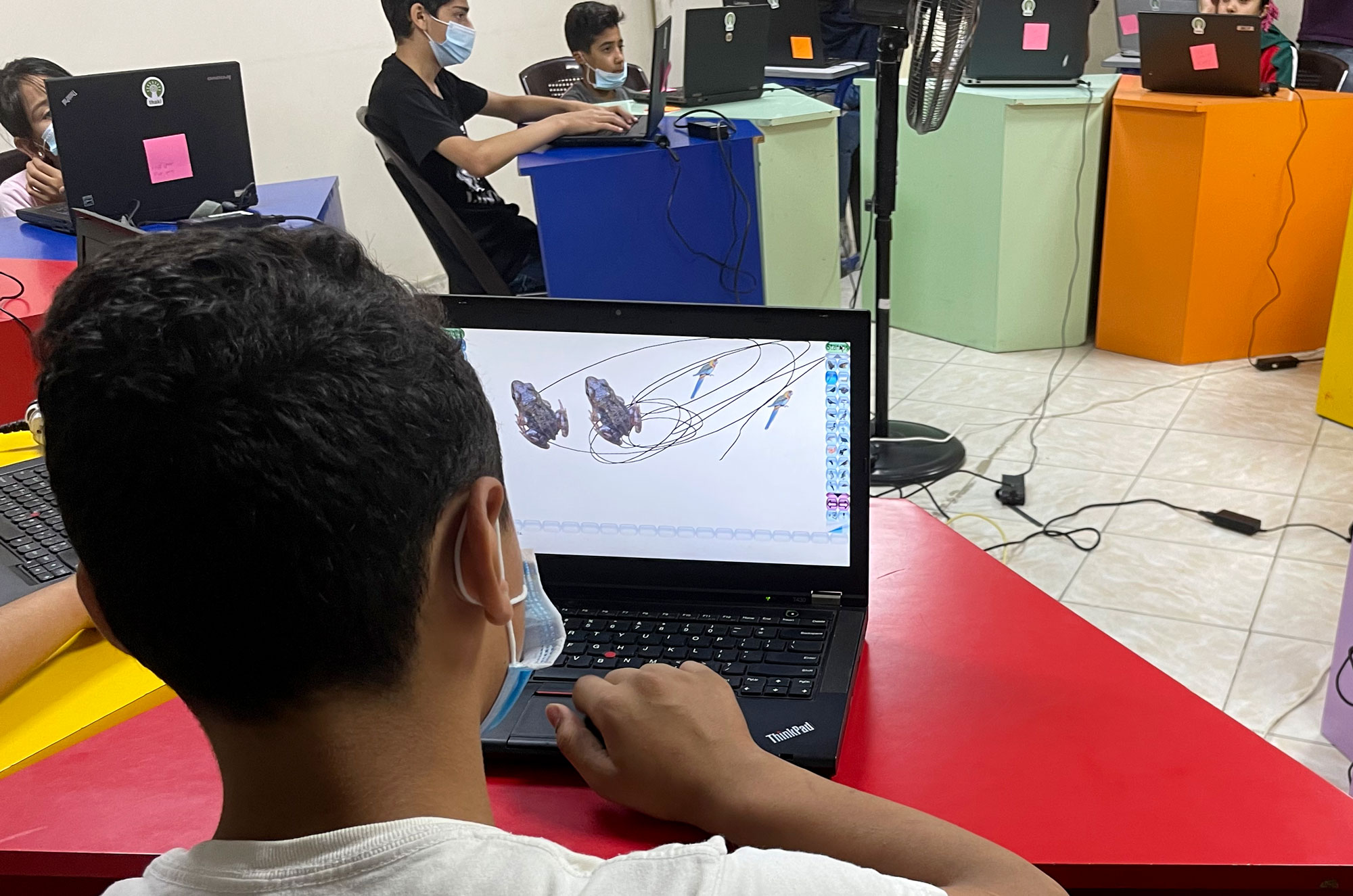Dec, 2021
Educational laptops make offline learning accessible
The emergence of a pandemic 18 months ago has impacted learning worldwide and forced many classrooms into remote education. The disruptions to in-person learning have particularly impacted vulnerable young students in Jordan.
Together with Thaki and with generous funding from Catalyst Foundation for Universal Education, Anera has launched a 12-month after-school, non-formal educational pilot program. In July 2021, we distributed Thaki's educational laptops to the after-school classes, involving 15 teachers and 99 students in all. Through local partners like the East Amman Charity Organization, we are targeting host community refugees and vulnerable Jordanians ages 10-12 years old.


“I can now use a laptop because I do not have one at home.” — Sedra, student
East Amman Charity Organization, one of UNICEF's main implementing partners on education in Jordan, is using the laptops in their learning space, called Makani (My Space) in East Amman.
The program addresses gaps in the education system by providing needed and accessible enrichment materials that complement and fill the gaps in the formal education sector in the Middle East.
The laptops provide user-friendly, offline learning content, including teacher-training and student-learning materials, equipping teachers and children with valuable skills needed for future employability. The supplementary educational content is regularly updated to reflect changes in learning trends and the unique needs of each population.
Parents and students involved in the pilot program are excited about this project because it provides them with opportunities that they would not have had before as they would not have had access to a computer.
Abdel-Rahman is one of the students at the center. “I did not know how to operate a laptop before this project,” he says. “And now I learned how.”
The educational laptops help students learn skills critical for thriving in modern life. Amani, a classmate, says, “We now know how to type on a keyboard and use the typewriter.”
Students who receive a Thaki laptop are from low-income families and do not have access to computers at home. Most of the parents simply do not have the time or resources to teach their children how to use a computer at home.
Areej, another student at East Amman Charity Organization, says her laptop has “programs that teach us how to draw and create beautiful shapes.”
And Hussam, another classmate, says the laptops are a fun way to learn.
One teacher participating in the program notes that the laptops are preloaded with “applications that enable us to teach students mathematics in an engaging method.”
The teacher says the Thaki devices contain “a wealth of knowledge and features to assist us in learning without the need to access the Internet.” The computers allow students to access school lessons even while they are offline and gain familiarity with technology that has become crucial to thriving in modern life.

